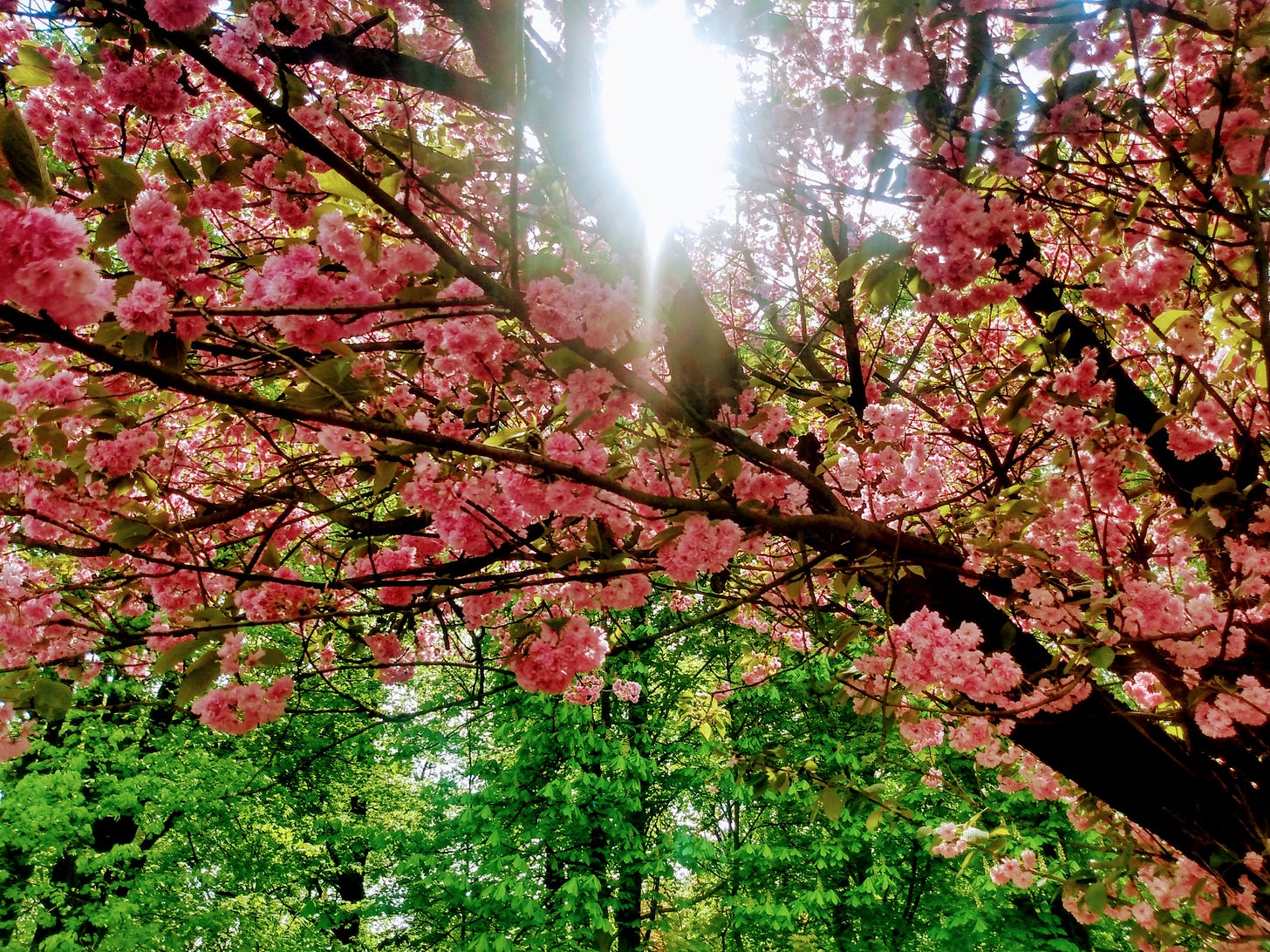"With an Infinity of Names" Edition
Hello,
Obligatory shilling. I wrote for my paying subscribers about cigarettes, Keyif and contemplation.
I reviewed Stacey Abrams' new legal thriller for The Spectator World. It was a more competently written book than I had expected, which made the review less entertaining, but one must be honest.
That was all I published this week but if you are at a loose end you could check out my old articles about Bruce Chatwin, or Tom Holland, or Mark Fisher, or O'Sullivan's First Law, or Polish wartime poetry, or personal growth.
Remember 2019? Douglas Murray comments on the irony of “Remainer” favourite Michael Barnier, the European Commission's Head of Task Force for Relations with the United Kingdom, proposing a moratorium on non-EU immigration into France. The irony will be at the expense of Brexiteers, though, if the EU tightens immigration and the UK does not.
One yes. Paul Kingsnorth writes in First Things about his journey to God:
“The story of Christianity,” wrote Moriarty, “is the story of humanity’s rebellion against God.” I had never thought of that ancient, tired religion in this way before, never had reason to, but as I did now I could feel something happening—some inner shift, some coming together of previously scattered parts designed to fit, though I had never known it, into a quiet, unbreakable whole.
Kingsnorth writes:
I didn’t become a Christian because I could argue myself into it. I became a Christian because I knew, suddenly, that it was true.
I spend a lot of time arguing with myself and others about the philosophical case for God. Perhaps this is a desiccated way of thinking and behaving. But this land is big enough for different roads.
Premium mediocre. Mary Harrington reflects on the proletariat and the precariat:
Those in this precariat who don’t score an inheritance, win the cryptocurrency lottery or otherwise roll a lucky six in the resources casino are left clutching their tickets for a middle-class party bus that seems to have departed without them. The US blogger Venkatesh Rao describes this lifestyle as “premium mediocre”: a kind of performance of bourgeois tastes and lifestyle, just about funded by hand-to-mouth spending.
It is good to see right-leaning media avoiding the temptation the prejudices of its more cantankerous readers. That does not mean one has to flatter the delusions of the young (about universal higher education, say, or the innumerable nature of the sexes). But it is good to understand their struggles.
Fracture. Word of a new cultural and political magazine arrives from the mysterious Byzantine Ambassador. Who is involved? I have absolutely no idea. But it looks sumptuous. The unnamed editors write:
Enter Fracture, which acknowledges the world is splintered on every level but that division is not an evil per se but rather – to quote Leonard Cohen – “how the light gets in.” The magazine is childish and immature in that most profound of ways in that it seeks to keep wonder alive and ask the questions many appear too afraid to ask.
Woke imperialism. Richard Hanania takes a critical look at Freedom House and the Western NGO complex:
…democracy is supposed to involve a respect for various segments of society, and a consideration of their views. A definition of the concept that delegitimizes what large swaths of the population believe about economic and social issues, while overlooking the prosecution of journalists disfavored by American foreign policy elites, is little more than a tool of propaganda and potentially oppression.
New arrival. Sam Ashworth-Hayes has joined Substack!
The one-click economy. Helen Andrews reviews a book about Jeff Bezos and Amazon:
Perhaps it shouldn’t be surprising that Bezos and his colleagues did not have much sympathy for the populist case. When Amazon was researching Whole Foods in preparation for its acquisition in 2017, it discovered that Whole Foods locations “neatly aligned with the geographic distribution of Prime members.” That could be a shorthand for an entire class: the people who live where Whole Foods locations are. The social costs of the one-click economy have not been borne by these people.
Deathmatch. This week's episode of Dark Side of the Ring - which I will scrupulously follow here to the interest of 0.5% of my readership - followed the deathmatch wrestler Nick Gage, whose punishing career of maximal pain for minimal pay led him to rob a bank, go to prison, and then emerge to rise to the top of his dark athletic niche in one of the most improbable success stories in professional wrestling. Footage of Gage ordering EMTs to let him return to the ring as he was bleeding to death was baffling but oddly inspiring. How much would you sacrifice for what you love to do?
New Jack, RIP. Speaking of the darker side of professional wrestling, this week the world lost New Jack - one of the more surreal characters in the business, magnetic on the microphone and dangerous in the ring. Did he actually try to kill people in his matches or was it all an act? He almost did, either way. But in fairness he almost killed himself as well.
New title, same boss. Mary Kate Skehan writes beautifully for The Lamp about her grandfather.
Have a lovely week,
Ben






